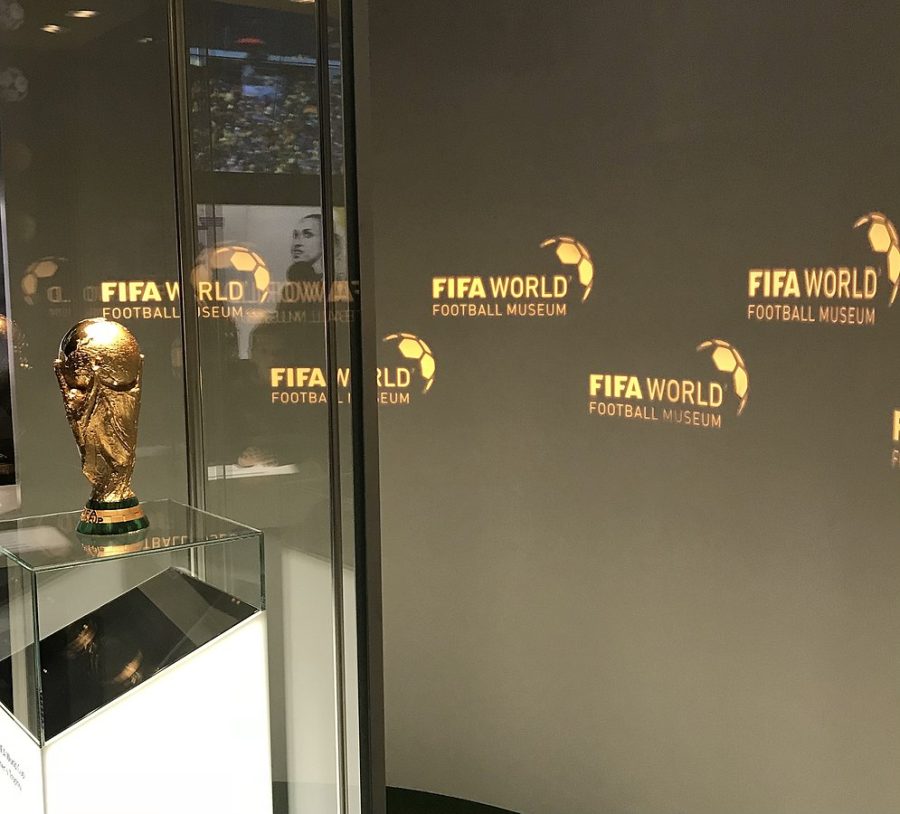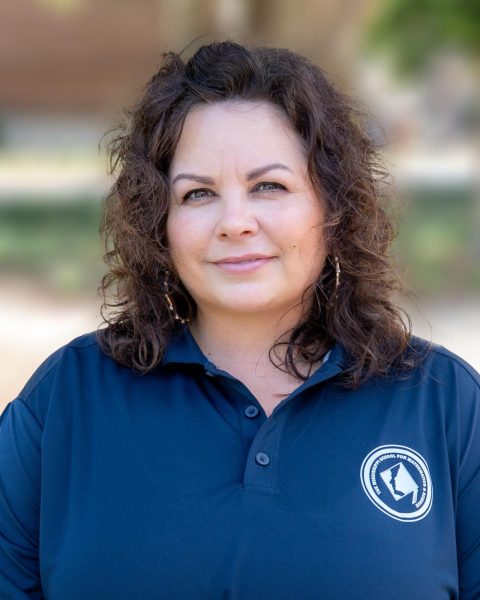Harvey: Qatar World Cup highlights ethical dilemmas in a globalized world
Ank Kumar, CC BY-SA 4.0
The 2022 Qatar World Cup was as problematic as it was thrilling, highlighting many issues we face in a globalized society.
February 20, 2023
I am an avid soccer fan. One of my earliest memories about professional soccer was in the summer of 2014, when I watched the United States scrape through a tightly contested match against Ghana in the World Cup group stages. My father has also indoctrinated me into another team — I support England alongside the U.S. They both matched into the group stages of the World Cup. This collided two distinct worlds — one covered in white stars, and the other etched in a red cross. This was one of the most exciting, conflicting times of my life. But did I even watch?
The Qatar World Cup was built on blood. More than 6,500 migrant workers died in the process of building the infrastructure necessary for such an event to take place. This tragedy underlies the lack of protection and support in place for migrant workers from Pakistan, Nepal, India, Bangladesh and Sri Lanka. Many deaths were due to the Kafala labor system in place. The system binds workers to their employers, who constrain and abuse them. Should the soccer fan allow this to happen? After all, it’s the involvement and money we put in the sport that allowed such a circumstance to happen.
I support Arsenal, a club in the English Premier League. Growing up supporting them provided me with highs, lows and everything in between. But Arsenal is also paid millions by Rwanda to encourage tourism. Like Qatar, Rwanda has been surrounded by controversy. My fan-induced hypocrisy keeps a blind eye to my club yet still allows me to criticize Qatar.
The more I researched the Qatar World Cup, the more I dug a hole to bury myself in. I argue against the country’s actions, but not against my own club. The reasoning I apply to Qatar can now apply to everything — the products I buy; the streets I walk on; the society I live in. As I type on Google Docs with a computer bought and brought to my house by Amazon, hypocrisy feels pervasive. Why should I argue against a country’s policies 7,000 miles away when I actively participate in a post-colonial world where inequality is rampant?
Human history is built on inequity and suffering. As I look at the blood spilled in Qatar, I’ve kept a blind eye to the carbon dioxide destroying the atmosphere, the single-use plastic items I’ve bought that will long outlive me or anyone else currently alive and the institutions I take part in that keep inequality rampant. I’ve unveiled an apocalyptic landscape that was hidden right under my nose this whole time.
Is being a hermit the only option? It feels like breaking all bonds to society is the only way to not participate in this new dark vision. The only thing separation achieves is uninvolvement; by instead of acting, ignoring. Will I wash my hands of the blood history spilled on me?
I’m falling into the classic journalist moral quandaryL Can I write about this while lounging on a sofa, knowing that chances are I’ll do nothing to act on it? Almost definitely not. I can argue acknowledgement is the first step to action. I hope by shedding light on any issue, no matter how far away, I can provide people with critical thinking about the issues around them. If more people see inequity, the hope is more will be done about it. Change requires both action and collaboration to actually occur.









